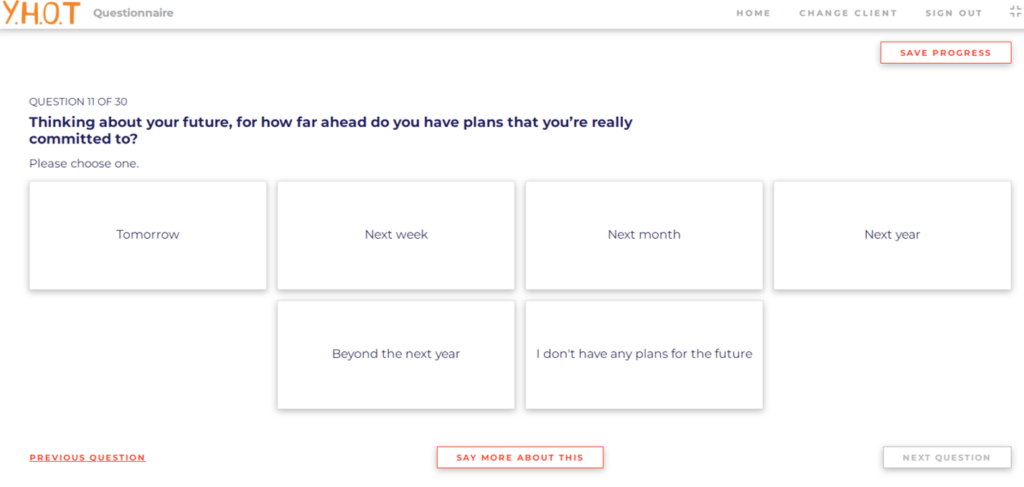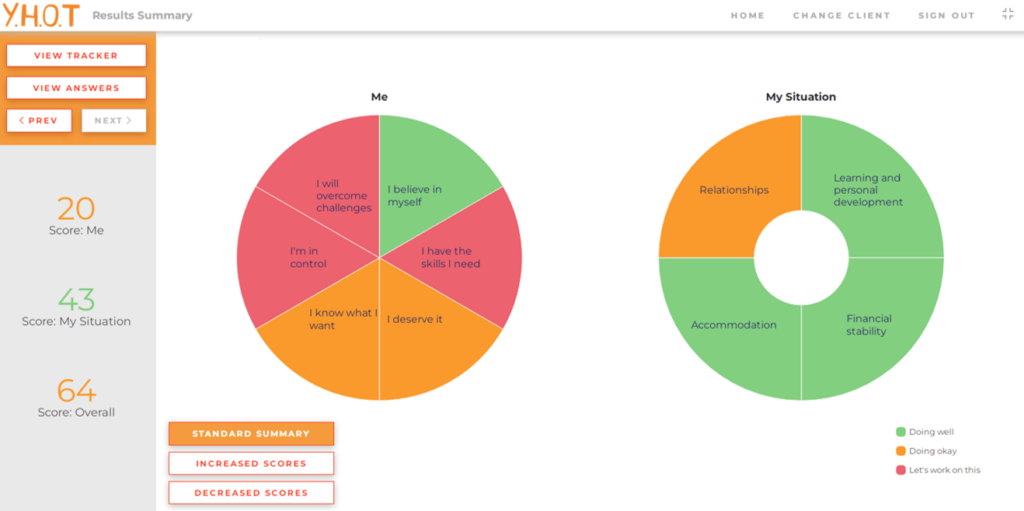
The Tracker
The YHOT is a 30-item, multiple-choice questionnaire for young people accessing support services. It is be first completed close to the beginning of young people’s support journeys and then at least every three months.
Completing the YHOT is a collaborative process between the young person and their support worker, designed to facilitate conversations that inform support planning. The YHOT also collects reliable data that can be aggregated to a service or organisational level, providing accurate information on where a service is making a difference.

Once the questionnaire has been completed, young people can see a summary of their progress. Their scores for ‘Me’ and ‘My Situation’ are presented as colour coded charts to highlight where young people are doing well, and where they can improve with support. The tool also has a helpful tracking chart that can show changes to a young person’s scores on the YHOT over time.

When using the YHOT, there are five guiding principles:
- Young people in the driving seat: responses should come from young people, not staff. The YHOT is a tool to gather information on change from young people’s perspectives.
- Best fit, not perfect fit: the YHOT keeps things simple by having a set number of responses for each question. There might be times there isn’t an option that perfectly fits a young person’s experience, so it’s about finding the best fit.
- Relish the conversation: the YHOT was designed to start a conversation between young people and their case worker. These conversations are as, if not more, important than the responses to the questions themselves.
- Honesty is the best policy: we all know that change isn’t linear and that things often get worse before they get better. Young people shouldn’t feel pressured to provide only positive answers, we want to know how they’re actually feeling and progressing, good and bad.
- Safety and wellbeing first: the YHOT might bring up some challenging conversations. While difficult conversations are sometimes useful, if completing the YHOT is too stressful for a young person then stop straight away and make sure they’re getting the support they need.